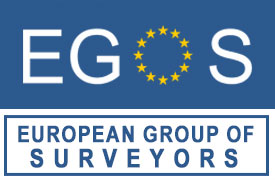EU - UK relationship 1st January 2021

At last, after 4 ½ years, the EU and UK have agreed on the terms (subject to approval) for the UK to leave the EU and function as an independent Nation, that is able to trade freely within the world, decide and prioritise on how to finance the nation, make our own rules and regulations and control its borders from the 1st January 2021.
The UK always wanted to trade freely with the EU and this was the prime reason for the UK to join the EEC on 1st January 1973. Events slowly and subsequently changed within the Union which was something that the majority of citizens in the UK did not want or require and in 2016 voted to leave the EU.
The negotiations were long and difficult because of a weak government and one that created a self-imposed further weakness by holding a generally election which reduced their power instead of getting on with the negotiations that the nation requested. This resulted in Ministers and prime movers who objected to the UK leaving the EU creating blocking actions that frustrated the process both in the UK and for the negotiations that were underway in the EU.
The sequence of events changed dramatically when a change of leadership in the Prime minister for one who voted to leave the EU who after initially trying to get legislation through parliament on leaving the EU, and repeated failed, called for an election.
The citizens of the UK were appalled by the ministerial provocation created in government and resoundingly voted (with a big majority) to support the Prime minister to get the job done which basically came about in a relatively short period of time.
Generally, trade will continue between the EU and UK pretty much as before except for some agricultural and other agreed areas without additional tariffs. This will however require more paperwork when exporting and importing goods which will probably added to the product costs.
There will no longer be free movement of persons between the EU and UK. Business and holiday visits will require passport entry and it is advised that persons carry a travel insurance and phone roaming charges may apply. Maximum length of stay 3 months. Personal items brought into the country shall not be worth more than €1200 in total value. Small personnel items sent as mail between the EU and UK shall not exceed €500 in value.
Anyone from the EU wishing to work in the UK, and I assume anyone from the UK wishing to work in the EU, will require a visa. Therefore, the job has to be approved by the Governments and considered to be necessary.
There is what is known as, temporary arrangements, for UK and EU persons to work in each other’s country for a maximum of one year. Normally this is used by multi-international organisations where expertise is required from personnel who live in a different EU state and is required to work in the UK or EU.
Education and professional training will be recognised by EU member states and the UK, but persons wishing to use those qualifications will have to satisfy standards set by each of the countries in which they wish to work. No different to what happens at the moment. The UK has decided not to participate in the ERASMUS programme.
This will not affect those students who wish to study in the UK but they will have to satisfy government requirements.
For all the above matters, I have prepared an extract from the agreement reached between the EU and UK that relate to the professions, trade and co-operations agreed between us which may be of help in understanding the requirements.
Much of the professions agreement I recognise in the arrangements set out in the EU requirements so I do not believe much will change.
ΜΑLCOLM LELLIOTT
GENERAL SECRETARY OF EGOS
U.K



